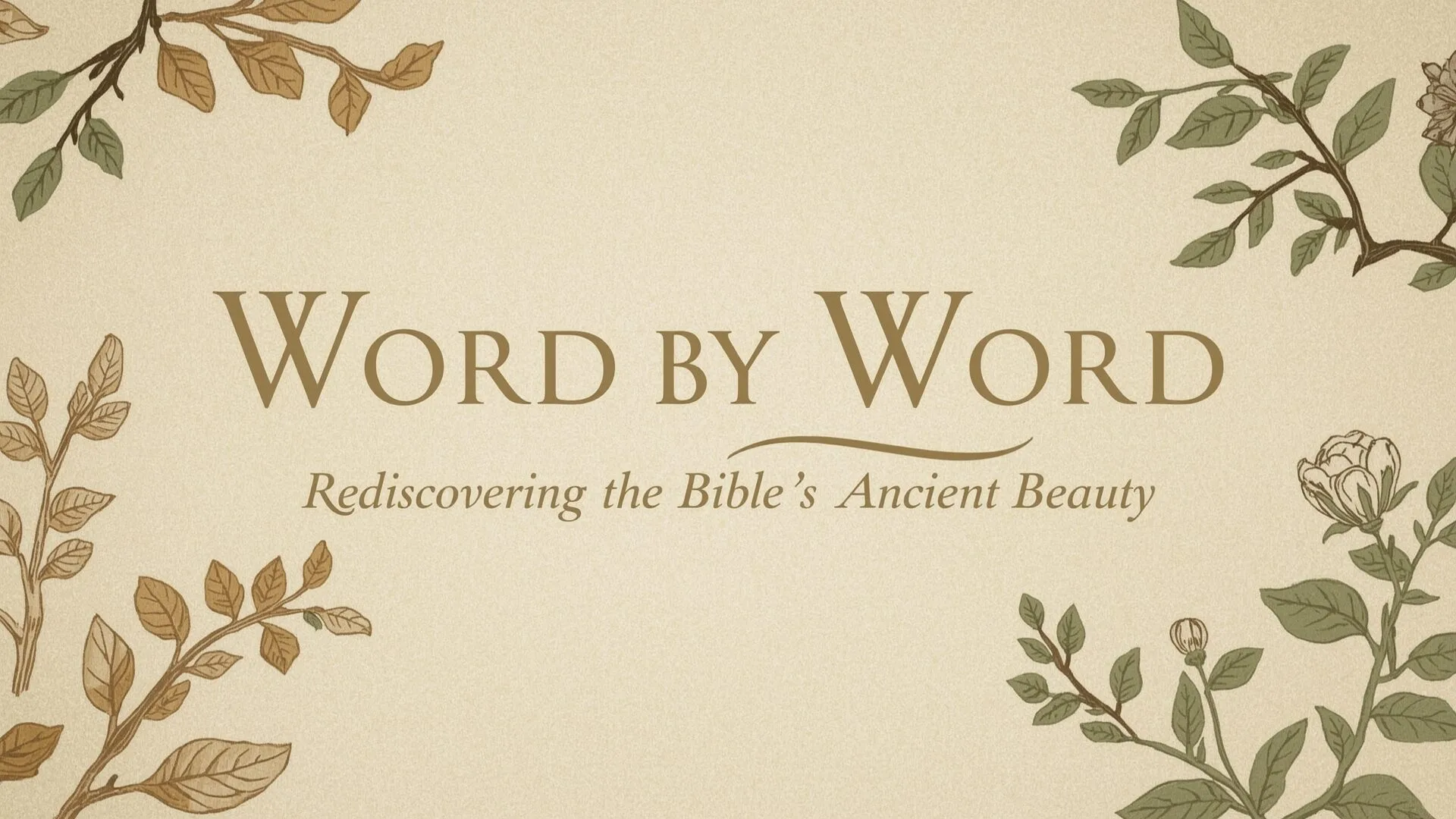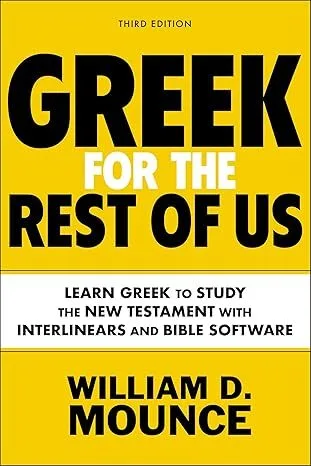Pronunciation Guide: oh-FAY-loh (ὀφείλω)
Quick Answer: ὀφείλω (opheilō) means “to owe” or “to be obligated,” encompassing both literal financial debt and profound moral obligation. This powerful Greek word reveals how our relationship with יהוה (Yahweh) and others involves sacred debts of love, duty, and spiritual responsibility that can only be fulfilled through the Messiah’s grace.

Key Information
ὀφείλω

Strong’s Entry
g3784
opheilo (of-ei’-lo) (or (in certain tenses), its prolonged form opheileo of-ei-leh’-o) v.1. to owe (finacially)2. (figuratively) to be under obligation, indebted (ought, must, should)3. (morally) to fail in duty[probably from the base of G3786 (through the idea of accruing)]KJV: behove, be bound, (be) debt(-or), (be) due(-ty), be guilty (indebted), (must) need(-s), ought, owe, should Root(s): G3786 See also: G3785
What Does ὀφείλω Mean?
Strong’s G3784: ὀφείλω (opheilō) fundamentally means “to owe” in its most comprehensive sense, encompassing financial debt, moral obligation, and spiritual indebtedness. This remarkable word carries the weight of personal accountability before God and others, describing both the tangible debts we owe in daily life and the profound spiritual obligations that define our covenant relationship with יהוה (Yahweh). The term reveals how human existence is inherently characterized by interdependence and responsibility, where we are constantly indebted to our Creator for life itself and to our neighbors for love and service. In the Messianic context, ὀφείλω illuminates our desperate need for divine forgiveness, as we can never fully repay our debt of sin, while simultaneously calling us to live in grateful response to the Messiah’s redemptive work.
Key Insight: Our greatest debt is to love—a sacred obligation that can never be fully paid but must be continuously offered in gratitude to God.
Where Does ὀφείλω Come From?
- Part of Speech: Verb
- Root Words: From the base of G3786 (ὄφελος – “profit, benefit”) through the idea of accruing
- Language Origin: Classical Greek, appearing in Homer and other ancient authors
- Primary Usage: To owe money, be obligated, ought, must, should
- Hebrew Equivalents: חַיָּב (chayav) – “liable, obligated”; חוֹב (chov) – “debt”; חוֹבָה (chova) – “obligation, duty”
What Is the Historical and Cultural Context of ὀφείλω?
ὀφείλω emerged from the ancient Greek concept of benefit and profit (ὄφελος), evolving to describe the natural obligation that arises when one receives something of value. In classical Greek literature, Homer and other early authors used forms of this word to describe both financial debts and social obligations, recognizing that human relationships inherently involve mutual indebtedness.
Ancient Economic Context
During the Hellenistic period, debt relationships formed the backbone of Mediterranean commerce and social structure. Unlike modern banking systems, ancient debts often carried personal and familial implications extending beyond mere financial transactions. The word ὀφείλω captured this comprehensive understanding of obligation, encompassing not just monetary debt but the entire web of social, moral, and religious responsibilities that bound communities together.
Hebrew Connection and Covenant Theology
The Hebrew equivalents חַיָּב (chayav) and חוֹב (chov) reveal how the concept of debt permeated Jewish thought about covenant relationship with יהוה (Yahweh). In Hebrew thinking, every blessing from God created a corresponding obligation of gratitude, obedience, and service. This theological framework deeply influenced how Greek-speaking Jews understood ὀφείλω when translating and discussing Scripture.
Septuagint Usage
When Jewish scholars translated the Hebrew Scriptures into Greek (the Septuagint/LXX), they employed ὀφείλω to render Hebrew concepts of debt and obligation, bridging the gap between Semitic covenant theology and Hellenistic legal understanding. This cross-cultural translation enriched the word’s meaning, making it a perfect vehicle for expressing both practical indebtedness and profound spiritual obligation.
Historical Summary: ὀφείλω journeyed from Greek commerce through Jewish covenant theology to become Christianity’s primary word for expressing our sacred obligations to God and others.
How Is ὀφείλω Used in the Bible?
ὀφείλω appears 35 times in the New Testament, revealing its central importance in biblical theology. The word functions across multiple semantic domains: financial debt (as in the parable of the unforgiving servant), moral obligation (as when Paul speaks of our duty to love), and spiritual indebtedness (recognizing our dependence on God’s grace). Most significantly, the term bridges practical and theological concerns, showing how everyday financial relationships mirror our deeper spiritual condition.
The Messiah’s teachings frequently employ ὀφείλω to illustrate kingdom principles, particularly in parables about forgiveness and stewardship. Paul’s epistles develop the theological implications further, using the word to describe both our obligation to sin (which the Messiah breaks) and our joyful duty to love one another. The term’s versatility allows biblical authors to move seamlessly between concrete examples and profound spiritual truths.
Usage Summary: Biblical authors use ὀφείλω to connect earthly debts with heavenly obligations, revealing how all human relationships reflect our fundamental indebtedness to God.
- Matthew 18:28 – “But when that servant went out, he found one of his fellow servants who owed [ὀφείλω] him a hundred silver coins”
- Romans 13:8 – “Owe [ὀφείλω] no one anything, but to love one another”
- Romans 15:1 – “We then that are strong ought [ὀφείλω] to bear the infirmities of the weak”
- 1 Corinthians 7:3 – “Let the husband render unto the wife due benevolence: and likewise also the wife unto the husband”
- 3 John 1:8 – “We therefore ought [ὀφείλω] to receive such, that we might be fellowhelpers to the truth”
- Luke 17:10 – “So likewise ye, when ye shall have done all those things which are commanded you, say, We are unprofitable servants: we have done that which was our duty [ὀφείλω] to do”
How Should ὀφείλω Be Translated?
Primary Meanings:
- To owe (financially or morally)
- To be obligated, bound, or indebted
- Ought, must, should (expressing moral necessity)
- To be guilty or liable
- To be due or fitting
Translation Tip: Context determines whether ὀφείλω refers to literal debt, moral obligation, or spiritual duty—often all three meanings resonate simultaneously.
ὀφείλω Translation Options:
| Translation | Context | Reasoning |
|---|---|---|
| “owe” | Financial contexts | Present active indicative emphasizes ongoing debt relationship |
| “ought” | Moral imperatives | Modal usage expressing ethical obligation or propriety |
| “should” | Gentle obligation | Softer modal form indicating advisable course of action |
| “must” | Strong necessity | Emphatic modal expressing compelling obligation or requirement |
| “be bound” | Legal/covenant contexts | Perfect passive participle indicating established obligation state |
What Does ὀφείλω Teach Us About God?
ὀφείλω reveals profound truths about יהוה’s (Yahweh’s) character and economy of grace. Unlike human creditors who demand payment, our heavenly Father demonstrates perfect patience with our spiritual debts while providing the means for complete forgiveness through the Messiah. The concept shows God’s justice in recognizing that debts must be paid, yet simultaneously reveals His mercy in accepting the Messiah’s payment on our behalf. This word illuminates how divine love operates not as cheap sentiment but as costly grace that takes our obligations seriously.
The theological weight of ὀφείλω demonstrates that God’s righteousness requires perfect justice—every debt must be settled—while His compassion provides the substitutionary atonement that satisfies justice and enables mercy. This paradox finds its resolution in the Messiah’s work, where divine love and divine justice meet at the cross, teaching us that forgiveness is both free to receive and infinitely costly to provide.
Theological Core: God’s perfect justice demands payment of our debt, while His perfect love provides the payment through Messiah’s sacrifice.
How Can I Apply ὀφείλω to My Life?
The reality of ὀφείλω calls us to live with profound gratitude and intentionality. Recognizing that we are perpetually indebted to our Creator for life, breath, and salvation transforms how we approach each day. Rather than living as independent beings, we embrace our identity as joyful debtors who can never fully repay what we owe but can respond with thanksgiving and obedience. This understanding frees us from the burden of earning God’s favor while inspiring us to generous service.
Practically, ὀφείλω shapes how we handle both financial and relational obligations. When we remember that the Messiah has forgiven our unpayable spiritual debt, we find grace to forgive others’ debts against us. This word encourages financial responsibility while preventing financial anxiety, as we trust the One who has already covered our greatest obligation to provide for our earthly needs as well.
Self-Examination Questions: What debts of gratitude do I owe to God and others? How does remembering Messiah’s payment of my sin-debt change how I treat those who owe me? Am I living as a forgiven debtor or trying to earn what has already been freely given?
What Words Are Similar to ὀφείλω?
- ὀφείλημα (opheilēma) – “debt, something owed” – refers to the actual debt itself rather than the act of owing – See G3783
- ὀφειλέτης (opheilētēs) – “debtor, one who owes” – identifies the person in debt rather than the obligation – See G3781
- δεῖ (dei) – “it is necessary, must” – expresses impersonal necessity rather than personal obligation – See G1163
- χρή (chrē) – “it is fitting, proper” – indicates appropriateness rather than indebtedness – See G5534
- ἁμαρτάνω (hamartanō) – “to sin, miss the mark” – describes falling short rather than owing a debt – See G264
Did You Know?
- What does ὀφείλω mean in modern Greek? It still means “to owe” and is commonly used in everyday financial contexts, preserving its ancient meaning across millennia.
- How did Homer use ὀφείλω? The great poet employed it to describe both material debts and honor obligations among warriors, showing the word’s dual nature from earliest Greek literature.
- What’s the difference between ὀφείλω and δεῖ? While δεῖ expresses impersonal necessity (“it must be”), ὀφείλω emphasizes personal obligation arising from relationship or benefit received.
- Why does the Bible use ὀφείλω in financial parables? The Messiah used this familiar commercial term to make profound spiritual truths accessible, connecting earthly experience with heavenly reality.
- How does ὀφείλω relate to covenant theology? It perfectly captures the Hebrew concept that receiving God’s blessings creates corresponding obligations of gratitude and obedience within the covenant relationship.
- What causes spiritual debt today? Every sin creates debt to God’s justice, every blessing received creates debt of gratitude, and every relationship creates debt of love and service.
- The word ὄφελον (ophelon) – a related form – was used as an exclamation meaning “Oh that!” or “Would that!” This shows how the concept of owing could express intense desire, as if saying “I would owe anything for this to happen!”
Remember This
ὀφείλω reveals that life itself is lived in the sacred space of indebtedness—we owe our existence to God, our growth to others, and our love to all creation, finding freedom not in independence but in the joyful acknowledgment of our beautiful obligations.
Note: While this entry strives for accuracy, readers engaged in critical research should verify citations and keyword occurrences in their Bible translation of choice. For Biblical citations, the F.O.G Bible project recommends Logos Bible software.
Strong's g3784
Add Comment
God's Word is too vast for a single perspective. We all have a story, and as believers we all carry the Holy Spirit who is the Revealer. With this in mind - I would love to read your comments.




